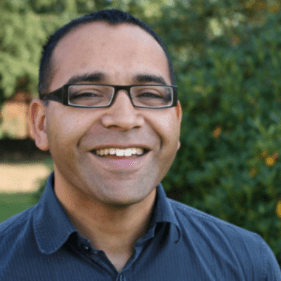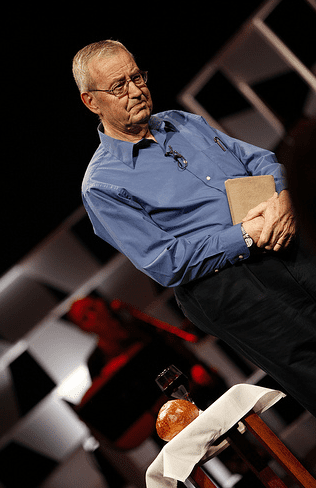Adam Hamilton’s book, Why?: Making Sense of God’s Will, is short. It’s wise. It asks four big questions:
Why do the innocent suffer?
 Why do my prayers go unanswered?
Why do my prayers go unanswered?
What can’t I see God’s will for my life?
Why God’s love prevails
But this isn’t a book that gives all the traditional answers; in many ways it’s a deeper apologetic than “answers to tough questions.” Adam is a pastor’s pastor and out of his years of experience Church of the Resurrection (UMC) in Kansas City he turns his attention to questions that each of us will ask at some point in life.
So, why do the innocent suffer?
Disasters force this question. Tragedy forces this question. The question arises from a conviction of how the world is supposed to work. God does not meet our expectations. But the Bible does not teach that God’s people will live in bliss, and God’s own Man died on a cross. God did not make a world in which we live absent of suffering.
Nor, Adam counsels, does the Bible teach us that everything happens for a reason. Too easily this idea unconsciously slides into God being the cause of tragedies and suffering. Is rape or murder the will of God? Adam proposes three ideas:
1. God has placed humans in charge of earth (Gen 1:27-28). Much to be said here, and he sketches some biblical theology on this one. “God’s primary way of ruling and acting on our planet is through people” (12).
2. To be human is to be free. We are called to choose between what is right and good and what is wrong.
3. Humans have a disposition to stray from God’s path. Sin and sin nature.
Leading now to three categories of suffering
1. Natural disaster and widespread human suffering. God made a world where these things happen; we might push this argument back into that kind of theodicy, but Adam argues we don’t have to think of earthquakes as caused by God. Humans are to respond to such disasters with compassion.
This all leads to a question like this: Is it more reasonable/biblical/theological to you to believe in divine causation for natural disasters or to see them more indirectly connected to God through the kind of world, where there is some freedom and chaos, God chose to make?
2. Suffering caused by human decisions: this one is plain to see. What we do, what others do … can cause suffering. Is this God? Or is this human decision?
3. Suffering caused by sickness: our bodies are not indestructible, and there’s an element of freedom about it … and we mostly live until a ripe old age — if we are in the affluent world … and is each and every sickness the result of divine causation or the way God made us?
We are heading into Holy Week: God enters into our suffering and suffering is not the last word.










